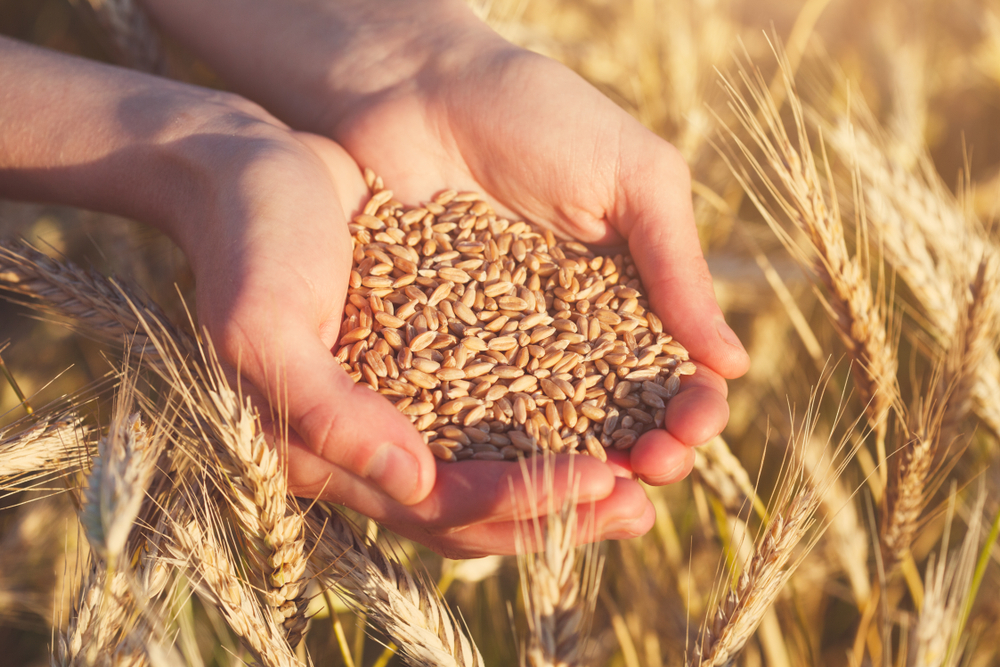
Then said Boaz unto Ruth, Hearest thou not, my daughter? Go not to glean in another field, neither go from hence, but abide here fast by my maidens: (Ruth 2:8)
After his servants informed him that Ruth was Naomi’s daughter-in-law, Boaz made the connection that Ruth was a kinswoman of his. He understood that she was a relative and even addressed her with fondness, calling her daughter. Boaz invited her to stay in his field to glean and even offered her special protection and provision:
Let thine eyes be on the field that they do reap, and go thou after them: have I not charged the young men that they shall not touch thee? and when thou art athirst, go unto the vessels, and drink of that which the young men have drawn. (2:9)
Ruth reacted with deep gratitude toward Boaz:
Then she fell on her face, and bowed herself to the ground, and said unto him, Why have I found grace in thine eyes, that thou shouldest take knowledge of me, seeing I am a stranger? (2:10)
Ruth was surprised that Boaz would be kind to her since she was not only a stranger to him in the sense that they had never met before but also a stranger in a national sense, being a Moabitess. Boaz sought to reassure Ruth:
And Boaz answered and said unto her, It hath fully been shewed me, all that thou hast done unto thy mother in law since the death of thine husband: and how thou hast left thy father and thy mother, and the land of thy nativity, and art come unto a people which thou knewest not heretofore. (2:11)
Ruth’s nationality did not deter Boaz. He had heard of her faithful service to Naomi, and he then pronounced a blessing upon her for it:
The LORD recompense thy work, and a full reward be given thee of the LORD God of Israel, under whose wings thou art come to trust. (2:12)
Ruth expressed her gratitude again:
Then she said, Let me find favour in thy sight, my lord; for that thou hast comforted me, and for that thou hast spoken friendly unto thine handmaid, though I be not like unto one of thine handmaidens. (2:13)
Boaz continued, however:
And Boaz said unto her, At mealtime come thou hither, and eat of the bread, and dip thy morsel in the vinegar. And she sat beside the reapers: and he reached her parched corn, and she did eat, and was sufficed, and left. (2:14)
In addition to providing protection and water to Ruth, Boaz invited Ruth to join his workers at mealtime to eat the food he provided for his reapers. On top of that, Boaz instructed his reapers to let her glean wherever she wanted in the fields and to purposefully drop additional grain for her to take:
And when she was risen up to glean, Boaz commanded his young men, saying, Let her glean even among the sheaves, and reproach her not: And let fall also some of the handfuls of purpose for her, and leave them, that she may glean them, and rebuke her not. (2:15-16)
Gleaning had just become much easier and more profitable for Ruth. Yet, she did not become lazy; she continued to work the remainder of the day:
So she gleaned in the field until even, and beat out that she had gleaned: and it was about an ephah of barley. And she took it up, and went into the city: and her mother in law saw what she had gleaned: and she brought forth, and gave to her that she had reserved after she was sufficed. (2:17-18)
When Ruth returned to her mother-in-law, Naomi noticed that Ruth had had a very bountiful day. Given their circumstances, two widows living alone, they were used to having very little in their lives. Ruth’s gleanings must have seemed like a great bounty to them.
Seeing Ruth’s great harvest, Naomi began inquired how her good fortune came about:
And her mother in law said unto her, Where hast thou gleaned to day? and where wroughtest thou? blessed be he that did take knowledge of thee. And she shewed her mother in law with whom she had wrought, and said, The man’s name with whom I wrought to day is Boaz. (2:19)
Ruth recounted her day and mentioned that it was Boaz who had been so kind to her. Naomi pronounced a blessing upon Boaz, but also made the connection that he was a near kinsman to them:
And Naomi said unto her daughter in law, Blessed be he of the LORD, who hath not left off his kindness to the living and to the dead. And Naomi said unto her, The man is near of kin unto us, one of our next kinsmen. (2:20)
By this time, the women likely felt an excitement they had not experienced in some time. After all the difficulty they had endured, losing husbands and sons, returning to Bethlehem as widows, they were relieved that something good had happened. God had not forgotten them.
And Ruth the Moabitess said, He said unto me also, Thou shalt keep fast by my young men, until they have ended all my harvest. And Naomi said unto Ruth her daughter in law, It is good, my daughter, that thou go out with his maidens, that they meet thee not in any other field. (2:21-22)
Ruth recounted to Naomi what Boaz had admonished her to do, and Naomi encouraged Ruth to do exactly that. Again, Ruth showed her humility and loyalty to Naomi by heeding her advice:
So she kept fast by the maidens of Boaz to glean unto the end of barley harvest and of wheat harvest; and dwelt with her mother in law. (2:23)
It is clear that Ruth was content to dwell with her mother-in-law and to care for her.
